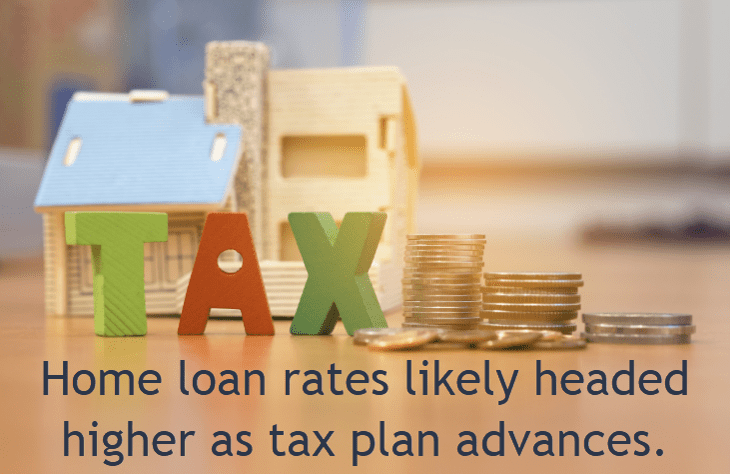
Advancement of tax plan expected to pressure mortgage rates higher
If you’re looking for something to celebrate this week look no further. On December 5, 1933 the 21st Amendment to the US Constitution was ratified effectively ending prohibition. Fast forward to 2017, Oregon’s brewing industry contributes $4.49 billion to the state economy and directly/ indirectly employs over 30,000 people. I can toast to that.
Republicans are toasting their advancement of tax overhaul legislation. The Senate narrowly passed their version of the tax bill which will now be reconciled with the House version.
The Tax Plan:
The new tax plan is bad for mortgage rates on a couple levels.
First, passage of the new tax laws is expected to add ~$1.4 trillion to the Federal debt over the next ten years. In order to fund the deficit the US Treasury will have to issue an equal amount of debt which will crowd out other borrowers and push yields higher.
Second, the new tax cuts are expected to promote economic growth which is good news for stocks. The Dow Jones Industrial Average has increased by over 1,000 points in the past week and is trading at all time highs. When stocks rally it tends to push interest rates up.
Jobs Week:
It’s the first week of a new month which means we’ll get a fresh all-important jobs report this Friday. The markets are currently expecting ~+190,000 new jobs created during the month of November. A figure significantly better than that would put upward pressure on mortgage rates and vice versa.
The Fed:
The next monetary policy meeting is scheduled for next week with an announcement set for December 8th. There is currently a 90% probability that the Fed will hike short-term interest rates by +.25%.
In other words, the home loan rates you see today already assume a rate hike. Please help consumers understand that mortgage rates will not automatically increase next week on account of this action (they could move higher for other reasons). The Fed does not directly set home loan rates but their comments and actions can cause volatility.
Given the momentum of the tax plan I recommend locking in.
Current Outlook: locking